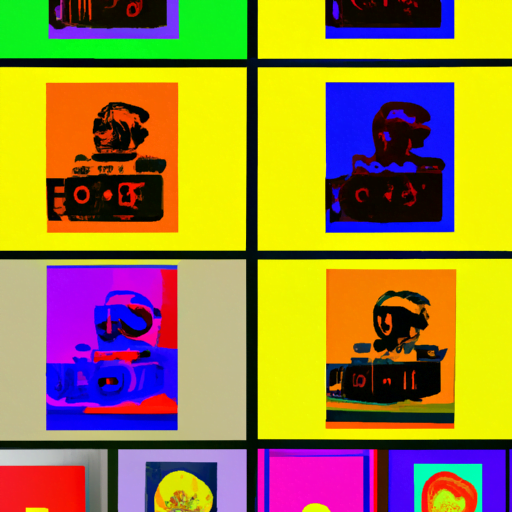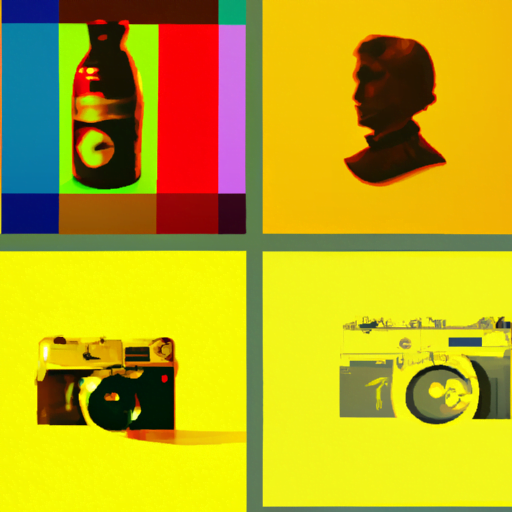
-
Table of Contents
Alexey Brodovitch: Revolutionizing Graphic Design

Alexey Brodovitch, a Russian-born graphic designer, art director, and teacher, is widely regarded as one of the most influential figures in the history of graphic design. His innovative approach to design and his relentless pursuit of visual excellence revolutionized the field and left an indelible mark on the industry. This article explores the life, work, and lasting impact of Alexey Brodovitch on the world of graphic design.
Early Life and Education
Alexey Brodovitch was born on May 25, 1898, in Ogolitchi, Russia. He grew up in a wealthy family and showed an early interest in the arts. Brodovitch studied at the Imperial Art Academy in St. Petersburg, where he honed his skills in painting and sculpture. However, his true passion lay in graphic design, and he soon began experimenting with typography and layout.
During his time in Russia, Brodovitch was exposed to the avant-garde movements of the early 20th century, such as Constructivism and Suprematism. These artistic movements, characterized by their bold use of geometric shapes and vibrant colors, would later influence Brodovitch’s own design style.
Arrival in Paris and the Birth of Design
In 1920, Brodovitch fled Russia due to the political turmoil of the Russian Revolution and settled in Paris. It was in the vibrant artistic community of Paris that Brodovitch truly found his calling as a graphic designer. He quickly established himself as a prominent figure in the city’s design scene, working for various fashion houses and magazines.
One of Brodovitch’s most significant contributions to the field of graphic design was his work as the art director of the influential fashion magazine Harper’s Bazaar. In 1934, he was appointed as the art director of the magazine, a position he held for over two decades. Under Brodovitch’s guidance, Harper’s Bazaar became renowned for its innovative and visually striking layouts.
The Brodovitch Style
Brodovitch’s design style was characterized by its boldness, simplicity, and dynamic compositions. He believed in the power of visual storytelling and used photography, typography, and layout to create compelling narratives within the pages of Harper’s Bazaar. His designs often featured large, dramatic photographs juxtaposed with minimal text, creating a sense of drama and impact.
One of Brodovitch’s most famous design elements was his use of white space. He understood the importance of negative space in creating visual balance and allowing the main elements of a design to stand out. By strategically incorporating white space into his layouts, Brodovitch was able to create a sense of elegance and sophistication.
Brodovitch also had a keen eye for typography. He experimented with different typefaces, sizes, and arrangements to create visually engaging and harmonious designs. His innovative use of typography helped establish it as a crucial element in graphic design, rather than just a means of conveying information.
Teaching and Mentorship
In addition to his work as a designer, Brodovitch was also a dedicated teacher and mentor. In 1936, he founded the Design Laboratory, a prestigious school of design in New York City. The school attracted some of the most talented young designers of the time, including Richard Avedon, Irving Penn, and Diane Arbus.
Brodovitch’s teaching methods were unconventional and focused on nurturing the individual creativity of his students. He encouraged them to push the boundaries of design and to think outside the box. His emphasis on experimentation and innovation had a profound impact on the next generation of graphic designers.
Legacy and Lasting Impact
Alexey Brodovitch’s contributions to the field of graphic design are immeasurable. His innovative approach to design and his relentless pursuit of visual excellence continue to inspire designers to this day. Brodovitch’s work at Harper’s Bazaar set new standards for magazine design and helped elevate the field to an art form.
His emphasis on storytelling and his use of photography as a powerful tool for communication revolutionized the way designers approached their craft. Brodovitch’s influence can be seen in the work of countless designers who have followed in his footsteps, from the world of fashion to advertising and beyond.
Key Takeaways
- Alexey Brodovitch was a Russian-born graphic designer and art director who revolutionized the field of graphic design.
- His work as the art director of Harper’s Bazaar set new standards for magazine design and helped elevate the field to an art form.
- Brodovitch’s design style was characterized by its boldness, simplicity, and dynamic compositions.
- He emphasized the importance of visual storytelling and used photography, typography, and layout to create compelling narratives.
- Brodovitch’s teaching methods and mentorship had a profound impact on the next generation of graphic designers.
- His legacy continues to inspire designers to this day, and his influence can be seen in the work of countless designers across various industries.
Conclusion
Alexey Brodovitch’s contributions to the field of graphic design cannot be overstated. His innovative approach to design, his emphasis on visual storytelling, and his relentless pursuit of excellence continue to shape the industry. Brodovitch’s work at Harper’s Bazaar and his role as a teacher and mentor have left an indelible mark on the world of graphic design. His legacy serves as a reminder of the power of creativity, experimentation, and pushing the boundaries of design.
